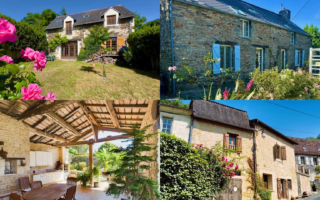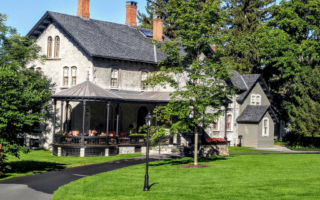Is your French property bargain too good to be true?

When is a bargain not a bargain? Could that terrific property price be hiding a terrible problem? Here’s how you can test whether a French property bargain is as good as it seems
So, you’ve found yourself a bargain property in France – great! But wait, have you considered why it is a bargain? Why is the seller so keen to sell you this great property for such a low price? Could it be that there is something wrong with the property that they are trying to hide from you? You may have genuinely found a bargain but it is worth checking a few things first. As a solicitor that deals with French property purchases, I am always sceptical when a client tells me they have found a bargain property in France and there are a few things that start alarm bells ringing…
Do any of these apply to your bargain property purchase?
• You are being pressured into signing an offre d’achat immediately. Normally, there should be some basic enquiries and then a compromis prepared, which is read through carefully.
• You are discouraged from making any enquiries at the mairie or talking to any neighbours in the vicinity.
• You do not know the area well.
• The seller says they need to sell urgently because of a family or financial problem.
• The price is significantly less than the market price but you have to buy immediately.
• The seller insists on you using their notaire even when the price is high.
• The seller answers your questions evasively and does not give any simple ‘yes’ or ‘no’ replies in writing.
• The compromis contains clauses which are obscure and difficult to understand.
• Complex clauses in the compromis are buried in the middle of other clauses.
• The seller tells you there is no need to have the property structurally inspected because no one does this in France.
• The seller is English or non-French who recently bought the property but is now very keen to sell it.
• There is no estate agent involved and the seller emphasises the saving of not paying a commission. A reputable estate agent would make sure the buyer knew the essential facts.
If any of these do apply to your bargain property purchase, I would recommend looking more closely into the following:
• What plans are there for any adjoining or nearby property? In the case of high-value rural or village properties there may be substantial building works planned which will affect the character of the village. A large housing estate covering the fields or vineyards you currently look out over could destroy the value of the property. The sellers may well know this is in the pipeline and have decided to reduce the price and sell before it becomes public knowledge.
• Check if any of your neighbours have applied for planning permission – any changes they make could affect the property, for example extending their house so it overlooks your garden and swimming pool.
• There are environmental risks such as existing major pipelines passing under or close to the house.
• Neighbours have a dispute with the seller, such as fences being moved onto a neighbour’s land to increase the size of their plot.
• Unauthorised building works have been carried out to increase the size of the property without planning permission.
• Road extension works or traffic changes are planned which will mean more cars will pass by the property.
• Planning for high-density, low-cost housing close to the property. This will usually substantially devalue an expensive property.
• There is planning for an out-of-town hypermarket near the village which will destroy local village shops and lead to a housing estate around said hypermarket.
• Expensive problems with the property have been covered up so that the French standard diagnostiques will not pick them up. This could include putting new wood over timbers which have had a termite infestation.
• In the case of flats, there are high service charge bills in the pipeline with expensive things like lifts due to be replaced.
• The property has been repeatedly burgled.
In the event of you discovering any of the above, what should you do?
• Slow things down. You may spend years regretting your mistake and not be able to resell the property. Don’t be pressurised into signing anything.
• Make appropriate enquiries. You need to have the facts before you speak to the seller.
• Ask the seller to give clear written warranties in the compromis de vente about matters that concern you.
• If you don’t feel you can trust the seller – and they can’t satisfy your concerns – simply do not buy the property.
David Anderson is a solicitor advocate and chartered tax advisor at Sykes Anderson Perry Limited
Tel: 0203 794 5959
Like this? You might enjoy these:
Are you paying the right price for your French property?Why should I buy a property in France?The best places to buy a bargain property in France
Share to: Facebook Twitter LinkedIn Email


